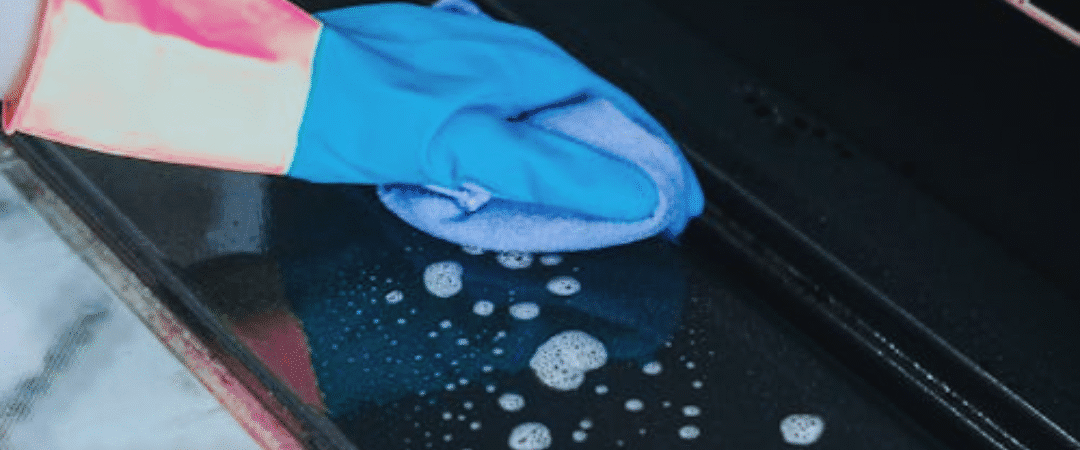Clean inside oven is a crucial aspect of maintaining not only the appliance itself but also a safe and efficient cooking environment. Over time, ovens accumulate grease, food particles, and carbon deposits, which can compromise both the performance of the appliance and the quality of the food being prepared. Neglecting oven maintenance may lead to uneven cooking, unwanted odors, and even the risk of smoke and fire hazards due to the buildup of flammable materials. Therefore, adopting a routine for oven cleaning is essential for every household.
Furthermore, the presence of accumulated debris can adversely affect the flavor of dishes. When grease and splatters are baked onto the oven surfaces, they may impart off-flavors to your food. Consequently, a clean inside oven is imperative for preserving the intended taste and ensuring that every meal tastes its best. This is particularly significant for avid cooks who prefer to experiment with various recipes and cooking techniques. A clean oven allows for optimal heat distribution, which is vital for a successful culinary experience.
Additionally, from a health perspective, neglecting oven hygiene can lead to the growth of bacteria and mold, especially in warm, moist environments. This not only poses a risk to food safety but can also trigger allergies and respiratory issues in sensitive individuals. Hence, by committing to regular oven cleaning, you not only enhance the cooking quality but also prioritize the health of your household. Consequently, creating a cleaning schedule and utilizing effective methods for maintaining a clean inside oven is recommended to ensure long-term efficiency and safety of your cooking equipment.
Essential Cleaning Supplies for Oven Maintenance
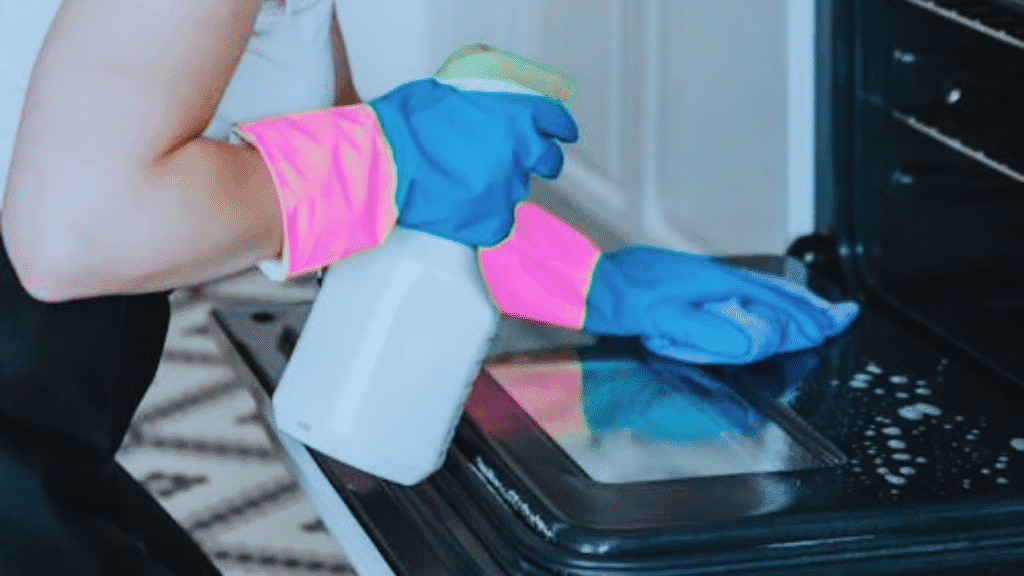
Cleaning your oven effectively requires the right set of supplies. To begin with, it’s crucial to select non-toxic cleaning agents that can assist in removing grease and grime without exposing you to harmful chemicals. One popular choice is a vinegar and baking soda mixture, which is not only safe but also highly effective in breaking down baked-on food residue. Commercial non-toxic oven cleaners are available as well, designed to tackle tough stains while being gentle on the environment.
Next on the list are sponges and scrub brushes. Opt for non-abrasive sponges that effectively clean the oven’s interior without scratching its surfaces. A good scrub brush is also vital for addressing stubborn areas, particularly on oven racks and the heating element. Ensure that the bristles are firm enough to lift debris yet gentle enough to maintain your oven’s finish.
In addition to cleaning agents and tools, safety equipment should not be overlooked. Protective gloves are essential when working with cleaning solutions, as they prevent skin irritation and potential reactions to chemicals. Similarly, wearing a dust mask can help avoid inhaling fumes or irritants during the cleaning process, particularly when scrubbing away hard-to-remove buildup. It’s advisable to wear safety goggles if you are using any spray cleaners to shield your eyes from accidental splashes.
Finally, consider having microfiber cloths handy for drying and polishing the surfaces once cleaning is complete. They are effective at trapping dust and grime, ensuring your oven is left sparkling clean. By gathering these essential supplies, you will be well-prepared to clean inside your oven efficiently and safely, achieving an optimal level of cleanliness and shine.
Step-by-Step Guide to Cleaning Different Oven Types

Cleaning your oven can seem like a daunting task, but with the right approach, it becomes manageable and effective. Here, we outline a comprehensive guide for cleaning various types of ovens: conventional, self-cleaning, and steam ovens.
Cleaning Conventional Ovens
For conventional ovens, start by gathering your supplies, including a non-toxic oven cleaner, a sponge or cloth, a putty knife for stubborn residue, and gloves for protection. First, remove the oven racks and soak them in warm, soapy water. This will help dissolve any buildup.
Next, apply your chosen cleaner to the interior surfaces of the oven, focusing on areas with heavy grease or stains. Allow the cleaner to sit for a specified period, as per the manufacturer’s instructions, to effectively loosen grime. Afterward, use a sponge or cloth to wipe down the surfaces, ensuring you remove all cleaning agents. For tough spots, a putty knife can be gently utilized to scrape away baked-on food. Restore the dampened oven racks to their original place once they are cleaned and dried.
Cleaning Self-Cleaning Ovens
Self-cleaning ovens simplify the arduous task of oven cleaning. Begin by removing any large food debris from the interior. Then, engage the self-cleaning cycle, which typically lasts from two to four hours depending on the model. This high-temperature function incinerates food particles, converting them to ash.
Once the cycle is complete, allow the oven to cool before using a damp cloth to wipe away the ash. Ensure any residual cleaning agents from pre-cleaning are also removed. This method effectively provides a deep clean inside your oven without significant manual effort.
Cleaning Steam Ovens
Steam ovens require a slightly different approach. Start by filling the water reservoir as per the manufacturer’s instructions. Run a steam cycle to loosen any food particles stuck to the oven walls. After this cycle, use a soft cloth to wipe away the loosened debris.
It’s essential to pay attention to the vapor filters and clean them regularly, as they can accumulate grease and odors. Many steam ovens come with removable parts that can be cleaned in warm, soapy water or placed in the dishwasher, contributing to a comprehensive cleaning process. By following these outlined steps, you can ensure that your oven remains clean, efficient, and maintains a high performance over time.
Natural Cleaning Solutions: Eco-Friendly Options
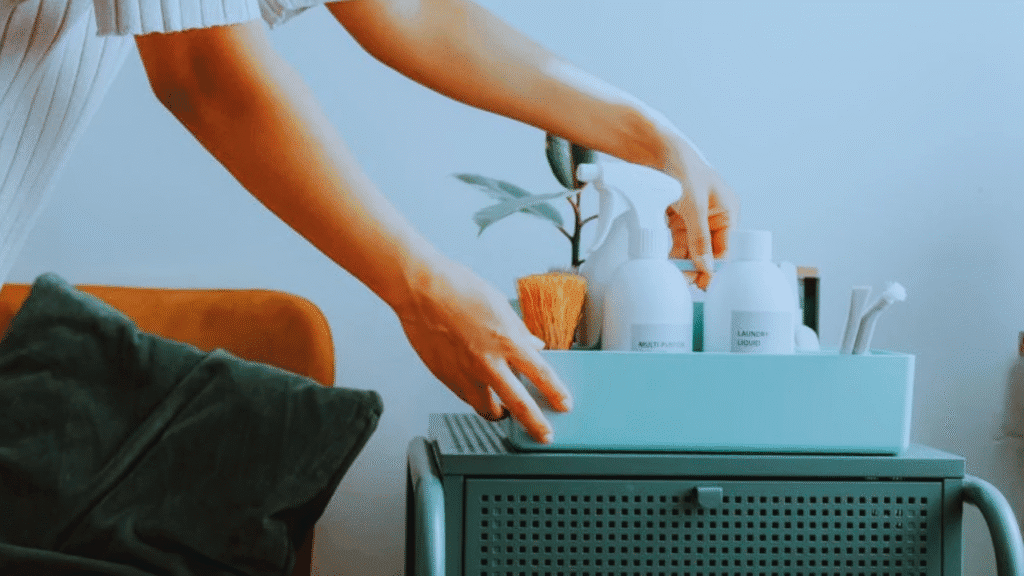
Cleaning the inside of an oven often involves harsh chemicals, but there are effective and eco-friendly alternatives that can achieve just as good results without compromising your health or the environment. Using natural ingredients such as baking soda, vinegar, and lemon not only helps in creating a safer cleaning atmosphere but also provides a cost-effective solution.
One of the most popular natural cleaning solutions is baking soda. When combined with water, it forms a paste that can be spread across the interior surfaces of the oven. Baking soda is mildly abrasive, which allows it to effectively lift grime and grease without scratching the oven’s surfaces. To create a strong cleaning agent, mix two parts baking soda with one part water until a thick paste is formed. Apply this mixture to the oven’s interior, focusing on particularly dirty areas, and leave it to sit for several hours or overnight.
Vinegar serves as another powerful tool for cleaning. Its acidic nature helps dissolve baked-on food residues and grease. After letting the baking soda paste sit, spraying distilled white vinegar over the surface will react with the baking soda, creating a foaming action that aids in lifting stubborn stains. Simply wipe away the foamed mixture with a damp cloth, and you will notice a significant improvement in the cleanliness of your oven.
Lemon is also an excellent natural cleaner due to its acidity and fresh scent. Slice a lemon and place it in a bowl of water, then heat the mixture in your oven for about five minutes. The steam produced will help loosen grime and can be easily wiped away afterward. These natural cleaning solutions not only help to clean the oven interior effectively but also leave your kitchen smelling fresh and inviting.
Common Mistakes to Avoid When Cleaning Your Oven
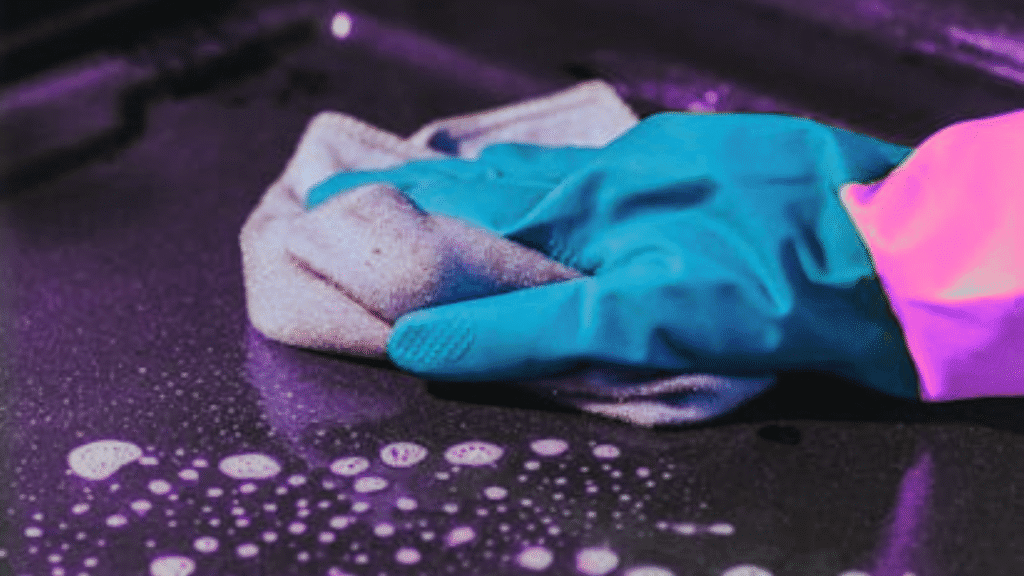
Cleaning inside the oven can often be a challenging task, and many individuals inadvertently make mistakes that hinder their efficiency. One of the most prevalent errors is the use of harsh chemicals. While it may be tempting to rely on powerful cleaning agents to tackle stubborn stains, these substances can adversely affect the oven’s surfaces and emit harmful fumes. Instead, it is advisable to opt for milder, more natural alternatives that effectively clean the oven without causing damage to its components.
Another common pitfall is the oversight of certain areas during the cleaning process. Often, people focus solely on the interior walls or the door, neglecting vital sections such as the oven racks, grease filters, and the oven’s base. These neglected spots can harbor grime and odors, making your efforts less effective. To achieve a truly clean inside oven, meticulously clean all components, including removable parts, ensuring a comprehensive approach to your cleaning routine.
Additionally, failing to allow sufficient drying time can result in residual moisture that becomes a breeding ground for mold and odors. When cleaning your oven, it is crucial to permit adequate time for drying, which enhances both cleanliness and functionality. After rinsing any cleaning solution, leave the oven door open for a while to air out and completely dry its surfaces.
Ultimately, being aware of these common mistakes is essential for achieving the desired outcome when cleaning your oven. By avoiding harsh chemicals, diligently cleaning all areas, and allowing for proper drying, you can maintain a sparkling finish and prolong the lifespan of your appliance, ensuring it operates efficiently.
The Benefits of Regular Oven Maintenance
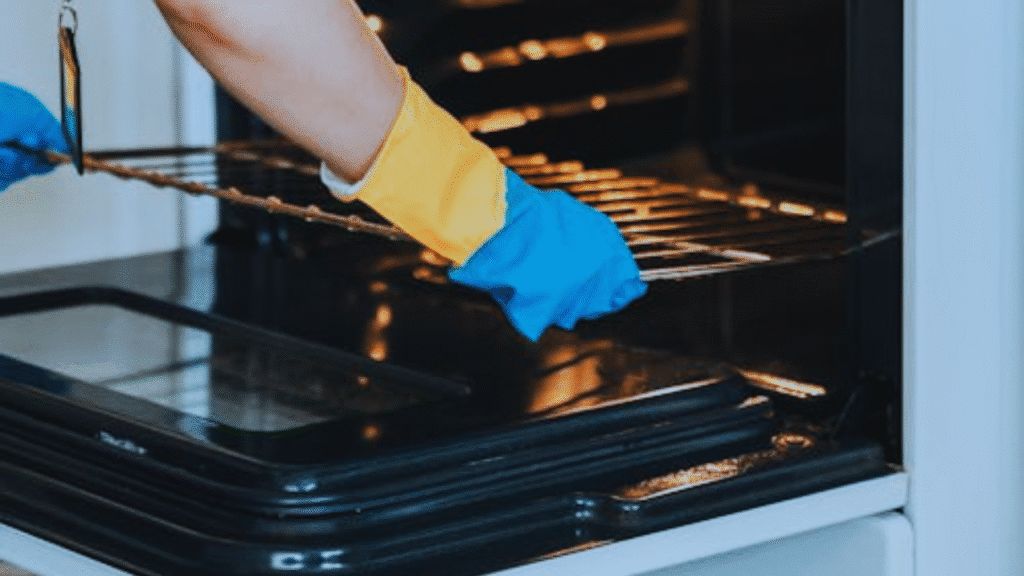
Regular oven maintenance is crucial for ensuring optimal performance and longevity of your appliance. One of the primary benefits of maintaining a clean oven is the enhancement of its functionality. When ovens accumulate grease and food residue, they can experience uneven heating, which adversely affects cooking times and food quality. A clean oven not only promotes even temperature distribution but also contributes to a healthier cooking environment.
Another significant advantage of regular oven upkeep is the reduction of fire hazards. Built-up grease is a flammable substance that can ignite during cooking, posing a serious risk to both the appliance and household safety. By consistently cleaning your oven, you diminish the likelihood of experiencing a hazardous situation, allowing you to use your oven with peace of mind.
Moreover, maintaining a clean oven leads to a more enjoyable cooking experience. When the oven is tidy and free of stubborn splatters, it allows for a more efficient cooking process, eliminating the frustration that arises from dealing with excessive smoke or unpleasant odors. Regular maintenance translates into less time spent cleaning and more time focused on meal preparation, making your culinary endeavors more enjoyable.
A proactive approach to oven maintenance can also diminish the need for extensive cleaning tasks. By committing to small, consistent cleaning sessions, you can prevent the buildup of grime that would otherwise require significant effort to remove. This not only saves time and energy but also prolongs the life of your appliance. Therefore, establishing a routine for your oven maintenance is a worthwhile investment that pays off in numerous ways.
Additional Tips for Keeping Clean Inside Oven
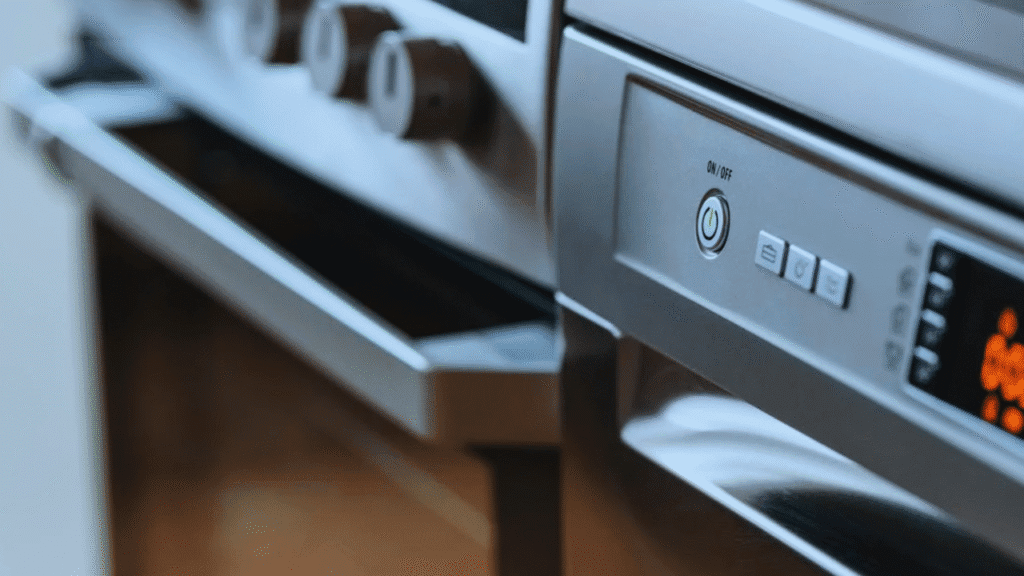
Maintaining a clean inside oven is essential for the appliance’s performance and longevity. Implementing proactive measures can significantly reduce the frequency and intensity of deep cleanings required. One effective approach is using oven liners. These liners are placed at the bottom of the oven to catch drips and spills during cooking. They can easily be removed, cleaned, and replaced, thus minimizing mess and protecting the oven’s surfaces from accumulated grime. When using this method, ensure the liner is heat-resistant and properly fitted to prevent any unintended contact with the heating elements.
Another valuable tip involves addressing spills immediately after they occur. When a spill happens, especially with sugary or greasy substances, it’s advisable to take swift action. Letting spills sit can lead to them becoming baked onto the oven’s surfaces, making remediation more difficult later. While the oven is still warm, but not hot enough to pose a burn risk, use a damp cloth or sponge to wipe up any messes. This quick response can make a substantial difference in the cleanliness of the inside of the oven over time.
Additionally, incorporating a regular cleaning routine into your schedule can help prevent the buildup of grease and food residue. Setting a reminder for a quick clean every month can keep the oven in optimal condition. This routine could include removing any oven racks and cleaning them separately, along with wiping down surfaces and inspecting for any spots that require extra attention. By being vigilant and organized about the cleaning process, you can ensure that your appliance remains in top shape, reducing the effort needed for occasional deep cleans.
Ultimately, establishing these habits will help you maintain a clean inside oven, thereby enhancing cooking efficiency and prolonging the life of the appliance.
When to Call in the Professionals for Clean Inside Oven

While cleaning an oven can often be accomplished through DIY methods, there are specific circumstances where enlisting the expertise of professionals becomes a prudent choice. One such situation is when there is severe grime buildup that has not responded to typical cleaning solutions. A heavily soiled oven might harbor baked-on grease, food remnants, or carbon deposits that require specialized equipment or cleaning agents not readily available to the average homeowner. When left unattended, this degradation can not only compromise the oven’s functionality but also create lingering odors and smoke when the appliance is in use.
Another reason to consider professional assistance is if there is any visible damage to the oven. Cracks in the glass door, warped racks, or malfunctioning heating elements can complicate the cleaning process significantly. Attempting to clean an oven with such damage may exacerbate the problem or even pose safety risks. Professionals are trained to identify and address these issues accurately, ensuring that the appliance is both clean and safe for continued use.
Moreover, if attempts at cleaning your oven with home remedies have proven futile, it may be time to reach out to a professional cleaning service. Sometimes, standard cleaning approaches fall short, particularly in the case of high-end or specialized ovens with intricate features. Professional cleaners possess advanced techniques and products specifically designed to tackle the toughest grime and stains, ensuring that your oven is thoroughly cleaned without causing harm to its components.
Ultimately, understanding the limitations of DIY methods can save time, effort, and potential damage. If the situation exceeds your cleaning capabilities, contacting professionals who can effectively clean inside the oven and restore it to peak condition is advisable.
Embrace a Cleaner Cooking Space

In conclusion, maintaining a clean oven is essential not only for hygiene but also for the efficiency and longevity of this vital kitchen appliance. Throughout this guide, we have explored various techniques and tips that empower homeowners to achieve a sparkling finish in their cooking space. A clean oven ensures that meals are prepared in a safe environment, reducing the risks of smoke or fire during cooking while also promoting better flavor and food quality.
Regularly cleaning the inside of your oven can prevent the buildup of grease, grime, and food particles that can lead to unpleasant odors and even affect the performance of the oven. By implementing simple cleaning practices and incorporating them into your regular cleaning routine, you can ensure that your kitchen remains a clean and inviting place for family and friends. Moreover, the methods discussed, whether using natural cleaners or store-bought products, are designed to fit the diverse preferences and lifestyles of different homeowners.
It is vital to approach oven cleaning not as a daunting chore but as an opportunity to enhance both your culinary experience and the overall aesthetic of your kitchen. Taking initiative to focus on cleanliness reflects a commitment to health and well-being, which resonates throughout your cooking practices. Remember, the effort you invest in keeping your oven clean not only contributes to peace of mind but also enhances the joy of cooking. So, take the first step towards a cleaner cooking space today, for a healthier home and a happier kitchen environment.
